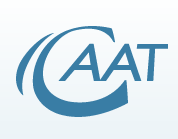Center for Alternatives to Animal Testing
The Johns Hopkins University Center for Alternatives to Animal Testing (CAAT) has worked with scientists, since 1981, to find new methods to replace the use of laboratory animals in experiments, reduce the number of animals tested, and refine necessary tests to eliminate pain and distress. CAAT is an academic, science-based center affiliated with the Johns Hopkins Bloomberg School of Public Health.[1]
Johns Hopkins University Center for Alternatives to Animal Testing | |
 | |
| Formation | 1981 |
|---|---|
| Location |
|
| Website | caat |
CAAT promotes humane science by supporting the creation, development, validation, and use of alternatives to animals in research, product safety testing, and education. It is not an activist group; rather, it seeks to effect change by working with scientists in industry, government, and academia to find new ways to replace animals with non-animal methods, reduce the numbers of animals necessary, or refine methods to make them less painful or stressful to the animals involved.[1]
References
- Goldberg, Alan M. (2015-06-01). "A History of the Johns Hopkins Center for Alternatives to Animal Testing (CAAT): The First 28 Years (1981–2009)". Applied In Vitro Toxicology. 1 (2): 99–108. doi:10.1089/aivt.2015.0015. ISSN 2332-1512.